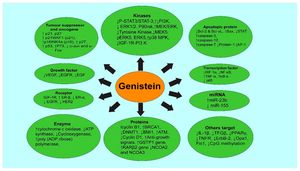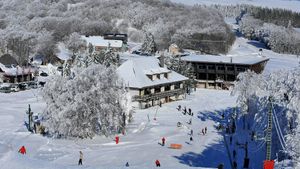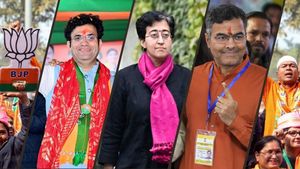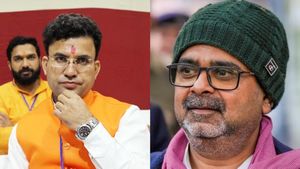Russian Science Day, celebrated annually on February 8, 2025, brings together scientists, students, and government officials across various regions of Russia, reaffirming the nation's commitment to science as a driving force for innovation and economic growth. The day also commemorates the establishment of the Russian Academy of Sciences back in 1724 by Peter the Great, marking its significant contributions to global scientific endeavors.
Celebrations kicked off with heartfelt messages from regional leaders. Notably, Evgeny Kuyvashev, Governor of Sverdlovsk Oblast, expressed his appreciation for the scientists and researchers, declaring, "Science is the most important factor for the innovative growth of the economy. Sverdlovsk Oblast is among the top ten Russian regions for scientific activities." These words resonate deeply within the scientific community, showcasing the region's relentless pursuit of excellence.
The Russian government, led by Prime Minister Mikhail Mishustin, has put forth substantial efforts to bolster young researchers' careers. Mishustin stated, "The significance of science continues to rise, with increasing interest among youth wanting to pursue research," emphasizing the administration's role in nurturing future generations of scientists. To support this, government initiatives have focused on providing grants and opportunities for young talent to engage and excel within the scientific field.
Meanwhile, the city of Penza celebrated the annual 'Scientist of the Year' awards, which recognizes both seasoned experts and promising young researchers. Sergey Vasin, Vice-Rector for Research and Innovation at Penza State University, mentioned, "Scientific achievements result from the hard work of entire teams, not just individual geniuses." This ideology resonates throughout the scientific community, reinforcing collaborative approaches to innovation.
The spotlight on young talent continued as Alexander Wagner from South Ural State University celebrated the university's contributions with pride. Wagner remarked, "We are proud of our researchers whose findings apply across industries and secure Russia's technological sovereignty. The synergy between academic institutions and industry is pivotal for future innovations." This sentiment highlights the importance of integrating education with real-world applications.
Not to be overlooked, Aysen Nikolaev, the head of the Republic of Sakha (Yakutia), shared his regional initiatives, which have contributed to making the area known for advancing science and technology. "With joint efforts, we will reach new heights, making Yakutia a model of innovation and sustainable development," Nikoleav stated, affirming the republic's commitment to fostering scientific inquiry and technological progression.
Throughout the day, various exhibitions showcased the latest scientific inventions and research projects across the participating regions. From environmentally sustainable materials developed by young researchers to cutting-edge technologies aimed at improving efficiency across multiple sectors, the displays revealed the vibrant energies within Russian science.
Educational institutions are also working to engage children and youths, setting up science fairs and discussions to kindle interest and appreciation for scientific exploration. Events include workshops and lectures featuring esteemed scientists such as Nikolai Vavilov and Sergey Korolev, highlighting their monumental contributions to science and encouraging the next generation of innovators.
Looking forward, the significance of Russian Science Day encapsulates the nation's commitment to advancing scientific knowledge and technology. The collaborative efforts of scientists, educators, and governments inspire young minds to think critically, innovate, and contribute to the future of national and global advancements. The synergy of these components promises to keep Russian science at the forefront of innovation.
On this day, both seasoned and budding researchers reflect not only on their achievements but also on their responsibilities to contribute to the world's scientific community as they continue to uphold the proud legacy of Russian science.



